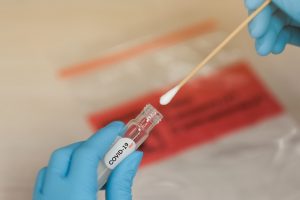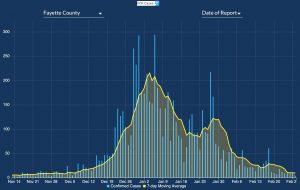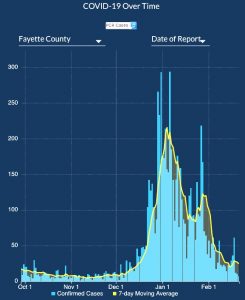As of Sunday morning, data compiled by the Johns Hopkins Coronavirus Resource Center shows the United States surpassing Italy for the number of people killed by the new coronavirus disease, Covid-19. While states struggle to get needed medical supplies, protective gear, and critical care beds, there is another crisis silently gaining momentum in the background – mental health.
According to poll results released on March 28 by the American Psychiatric Association (APA), nearly half of Americans (48%) are anxious about the possibility of getting coronavirus. Fear of contracting the virus isn’t the only concern. More than one-third of Americans (36%) say coronavirus is having a serious impact on their mental health.
Adam Glendye, President of GROW Counseling’s Peachtree City office, says his office is seeing an increase in both new clients as well as clients experiencing recidivism. “There is a great deal of uncertainty for the future and people are wondering, ‘How do I survive?’” He calls what people are experiencing as a “collective grief,” in the sense that most people are going through some type of loss, including loss of normalcy.
Job loss is contributing to the increased stress-load of many Americans. The U.S. Department of Labor reports that more than 16 million Americans have lost their jobs in the past three weeks and predict the number to rise to over 20 million by the end of April.
Glendye says increased attention to self-care is the first line of defense for keeping mental health in check. His recommendations are as follows:
- Put on your oxygen mask first. You cannot help others if you aren’t taking care of yourself.
- Focus on the basics: Eat a healthy diet, get some exercise every day, and be sure you are getting enough sleep.
- Stick to routines as much as possible. If you are out of work, take time to work “on” your business, instead of “in.”
- Remember to take time to connect with people remotely. Make a phone call, connect via Skype, etc.
- Realize it’s okay to be human.
GROW Counseling Services has free Covid-19 Resources available to the public via their website. Their resources include a Survival Guide to Self-Care that Glendye recommends people print and discuss with family members over dinner.
The need for self-care may be especially important for health care providers working on the frontlines of the pandemic who, early data suggests, may be particularly vulnerable to depression, anxiety, insomnia, and distress. GROW Restored Foundation, the nonprofit arm of GROW Counseling, is offering free social support groups called Story Groups to provide extra emotional support for healthcare workers during these difficult times.
In the meantime, Sandro Galea, MD, of the Boston University School of Public Health, and colleagues warned in a viewpoint published online in JAMA Internal Medicine of the likelihood of increased rates of mental health problems as a result of the Covid-19 pandemic and the need to “recognize the pandemic that will quickly follow it – that of mental and behavioral illness.”













Leave a Comment
You must be logged in to post a comment.